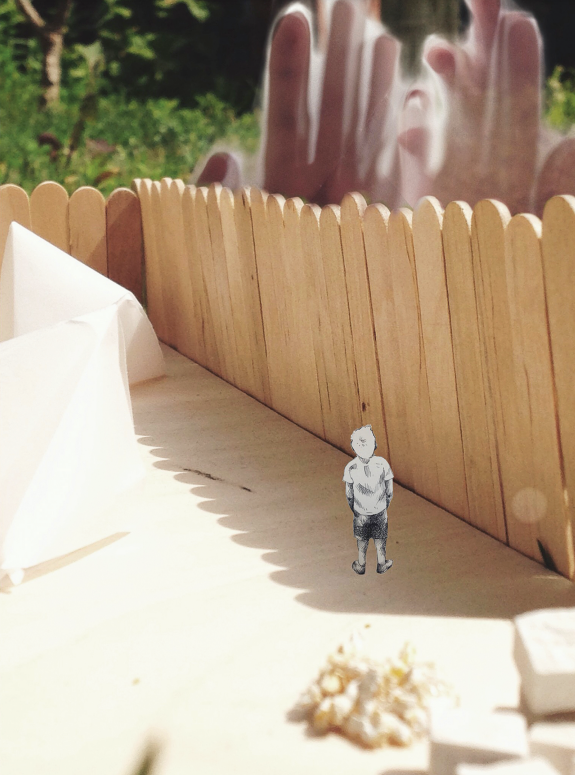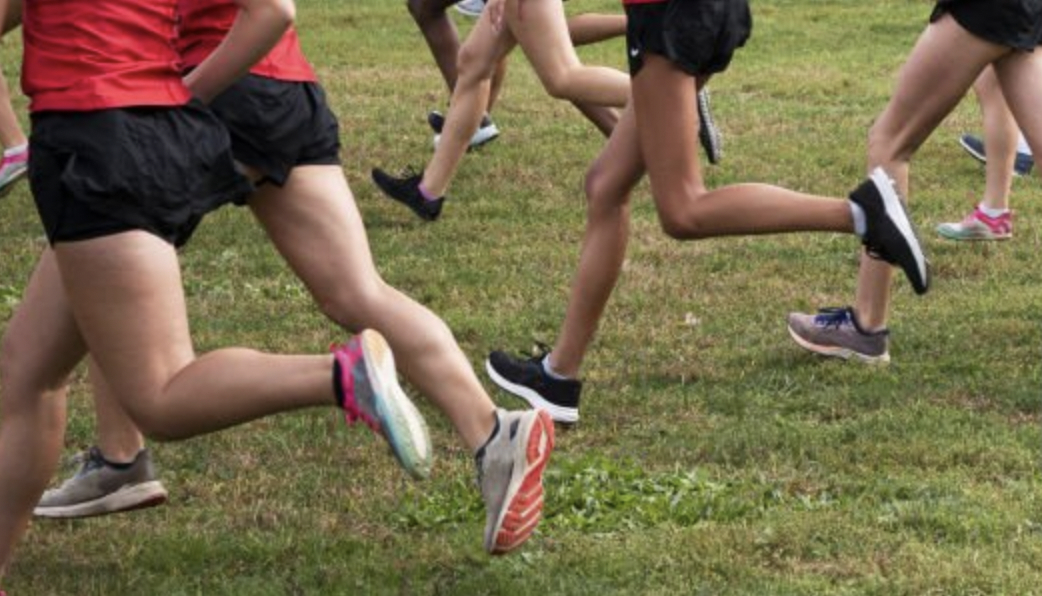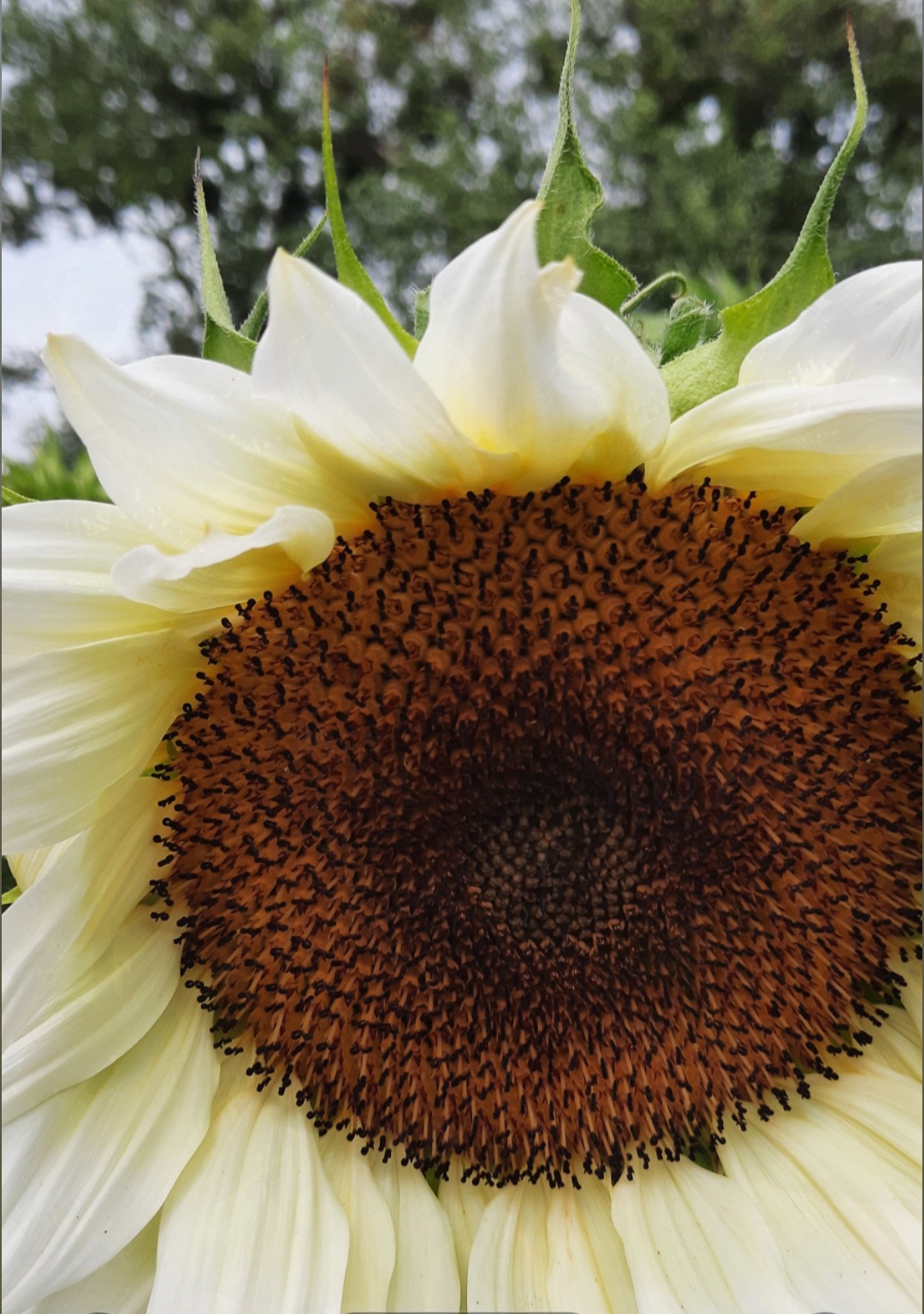By BOTHAYNA AL-ESSA
Translated from the Arabic by SAWAD HUSSAIN
(1)
In those days, everyone had the right to have feelings.
It was natural to feel things, and the right thing to do about your feelings was to make them known. Feelings were plenty, but broadly they were segregated into two groups: Love and Fear.
In those days, there was only one way you could sin: by faking your feelings.
(2)
Then along came Thoughts, leaving muddled feelings in their wake.
Thoughts decided that a person should feel only strength and happiness, that weakness shouldn’t be allowed room to seep into one’s heart.
And from that day forth, feelings were bestowed new names: those in the Love camp came to be known as “positive” and those of Fear as “negative.”
Everyone applauded what Thoughts had wrought. Everyone—except for one boy.
Afraid as he was, he didn’t clap.


(3)
People refused to feel with the entirety of their hearts, and so everyone grew to have half a heart. They felt only things that Thoughts had agreed to, supposing that such an approach made them happier.
Everyone also felt that their hearts were lighter, after having rid themselves of half a heart. It was better this way. All of them, except for the one boy who, worried that his heart would be sure to miss something, kept his heart whole.

(4)
Thoughts decided to banish negative feelings from the city altogether. At the closed city gate, Fear stood with the rest of the exiled feelings and began to sprout from its roots, demanding to be let back in.
The negative feelings held up large protest placards:
Negative Feelings Count Too
Equality for All Feelings
Down with Discrimination
All Feelings Matter
Half a Heart = Half a Man
“O people,” Fear said, “every thought, at its root, is a feeling. The desire to be happy is fear of sadness, and the desire to be strong is the fear of weakness. O people, you reject me because you yourselves are afraid of being rejected.” Fear said much more, but no one paid any heed.
Only the boy listened.

(5)
A long time passed.
The negative feelings stood at the city gate. With every day that passed, they grew, swelled up, until they towered over the walls, over the city gate and the city itself. The boy pointed: “Look at how big Fear is!” But they all told him to be quiet, and they kept their eyes firmly on the ground before them as they scurried to their homes and places of work, to their dance parties and joyous occasions.
(6)
Fear grew so large that it veiled the entire sky.
The city folk could no longer see the sun, for Fear had blocked it out entirely, leaving the people to stumble over each other in the dark. No one could see anything, but because they had gotten so used to turning a blind eye, they all believed they could get on without the sun as well.
“Without the sun, we can’t see Fear, or even Love,” the boy said.
His words fell on deaf ears. “Why can’t you just be happy like us?” they chided.

(7)
The darkness grew thicker, and it became difficult for people to go to their dance parties and joyous occasions and, as the days went by, no one could see anyone else, not even their nearest and dearest.
As Anxiety crouched outside, behind the city gate, not a single soul was perturbed by the absence of Love.
The other halves of their hearts started to atrophy from lack of use.
(8)
People no longer felt anything when they listened to Thoughts preach from the pulpit about how they shouldn’t give in to terrorism, how they shouldn’t negotiate with the reasons for their misery, but instead they should hold on to the happiness that they chose and continue feeling it. But no one felt or understood anything anymore.
“What does that mean?”
“What misery?”
“What happiness?”
“What is going on?”

(9)
At that moment, the boy slipped away from the crowd and approached the city gate. With considerable effort, he managed to open the bolted gate.
(10)
As soon as the gate opened, the people started to yell; trembling with fear, they ran off in all directions.
(11)
But, after a while, the sun reappeared, and in its light, everyone could see the truth of what they felt, giving Fear a way back home.
(12)
With Fear making its way back into their hearts, they held each other’s hands, and they all were bathed in the rushing waves of Love.
(13)
All hearts became whole.
Each heart with two wings: Fear and Love.
And not a word of protest could be heard from Thoughts.
Bothanya Al-Essa is a novelist from Kuwait, and founder and CEO of Takween Publishing and its associated bookstore. She won the National Encouragement Award twice in the field of fiction. She has tried her hand at translation and writing children’s literature.
Sawad Hussain is an Arabic translator; her work has been recognized by English PEN, The Anglo-Omani Society, and the Saif Ghobash Banipal Prize. She is a judge for the Palestine Book Awards and the National Translation Award in Prose in 2023. Her upcoming translations include Edo’s Souls, by Stella Gaitano.
Artwork by Zahra Al-Mahdi.
This excerpt is part of a collaborative text-image book, entitled Madina Bi Nisf Qalb (The Half-Hearted City), by writer Bothayna Al-Essa and artist Zahra Al-Mahdi, published in Kuwait in 2020.





